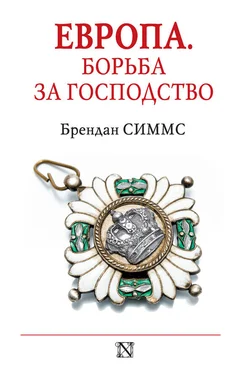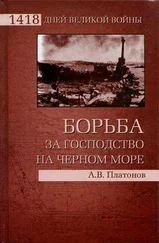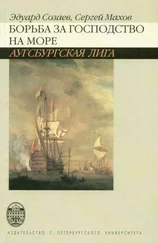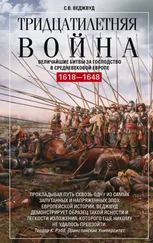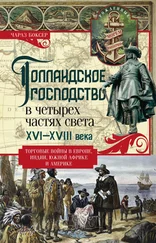Quoted in Neuhaus, ‘Das Problem der militärischen Exekutive’, p. 301.
‘The Instructions to the Commissioners for Composing a New Code of Laws’, Moscow, 30 July 1767, in William F. Reddaway (ed.), Documents of Catherine the Great. The correspondence with Voltaire and the Instruction of 1767 in the English text of 1768 (Cambridge, 1931), pp. 216–17.
Quoted in Scott, Emergence of the eastern powers, p. 99.
Franz A. J. Szabo, Kaunitz and enlightened absolutism, 1753–1780 (Cambridge, 1994), p. 76. I am grateful to Daniel Robinson for this reference.
Kathleen Wilson, The sense of the people. Politics, culture and imperialism in England, 1715–1785 (Cambridge, 1995), pp. 215–16.
Michael Roberts, Splendid isolation, 1763–1780 (Reading, 1970).
Quoted in Simms, Three victories, p. 536. See also P. J. Marshall, The making and unmaking of empires. Britain, India and America, c. 1750–1783 (Oxford, 2005), pp. 1–3, 59–60, 273–310, and passim.
Quoted in Norman Davies, God’s playground. A history of Poland. Vol. I: The origins to 1795 (Oxford, 1981), p. 511.
T. C. W. Blanning, The culture of power and the power of culture. Old regime Europe, 1660–1789 (Oxford, 2003).
Ron Chernow, Washington, a life (London, 2010), pp. 59–62.
Marc Egnal, A mighty empire. The origins of the American Revolution (Ithaca and London, 1988). Недавнее исследование о колонистах как “английских империалистах”: Robert Kagan, Dangerous nation (New York, 2006), pp. 12–16 and 18.
Jerzy Lukowski, The partitions of Poland, 1772, 1793, 1795 (London and New York), pp. 52–81 (Frederick is quoted on p. 55).
Cited in D. B. Horn, British public opinion and the First Partition of Poland (Edinburgh, 1945), pp. 26 and 36–7.
Bernd Marquardt, ‘Zur reichsgerichtlichen Aberkennung der Herrschergewalt wegen Missbrauchs. Tyrannenprozesse vor dem Reichshofrat am Beispiel des südöstlichen schwäbischen Reichskreises’, in Anette Baumann, Peter Oestmann, Stephan Wendehorst and Siegrid Westphal (eds.), Prozesspraxis im Alten Reich. Annäherungen – Fallstudien – Statistiken (Cologne, Weimar and Vienna, 2005), p. 53.
Jennifer Pitts, ‘The stronger ties of humanity: humanitarian intervention in the eighteenth century’. I thank Dr Pitts for letting me have sight of her excellent unpublished paper.
Robin A. Fabel, Colonial challenges. Britons, Native Americans and Caribs, 1759–1775 (Gainesville, 2000), pp. 158–60.
George P. Anderson, ‘Pascal Paoli: an inspiration to the Sons of Liberty’, Publications of the Colonial Society of Massachusetts, 26 (1924–6), pp. 180–210, especially pp. 189–91 and 202–3 (for quotations).
Richard B. Sheridan, ‘The British credit crisis of 1772 and the American colonies’, Journal of Economic History, 20 (1960), pp. 161–86.
John Adams to Mercy Warren, 20 July 1807, in Collections of the Massachusetts Historical Society, Fifth Series, IV (1878), p. 338. I thank Daniel Robinson for drawing this letter to my attention.
Richard Middleton, The War of American Independence, 1775–1783 (Harlow, 2012), pp. 15–36.
Hamish Scott, British foreign policy in the age of the American Revolution (Oxford, 1990), and Donald Stoker, Kenneth J. Hagan and Michael T. McMaster (eds.), Strategy in the American War of Independence. A global approach (London and New York, 2010).
Cited in Robert Rhodes Crout, ‘In search of a “just and lasting peace”: the treaty of 1783, Louis XVI, Vergennes, and the regeneration of the realm’, International History Review, 5, 3 (1983), p. 374.
Quoted in Kagan, Dangerous nation, p. 47.
Jonathan R. Dull, A diplomatic history of the American Revolution (New Haven and London, 1985), p. 47.
David M. Fitzsimmons, ‘Tom Paine’s new world order: idealistic internationalism in the ideology of early American foreign relations’, Diplomatic History, 19 (1995), pp. 569–82 (quotations p. 579).
Mlada Bukovansky, Legitimacy and power politics. The American and French Revolutions in international political culture (Princeton and Oxford, 2002), pp. 110–64 and 216–20, and Walter McDougall, Promised land, crusader state. The American encounter with the world since 1776 (New York, 1997).
Ben Baack, ‘Forging a nation state: the Continental Congress and the financing of the War of American Independence’, Economic History Review, 54, 4 (2001), pp. 639–56, especially pp. 639–40.
Quoted in Munro Price, Preserving the monarchy. The Comté de Vergennes, 1774–1787 (Cambridge, 1995), p. 22.
Sandwich remarks to cabinet, 19 January 1781, Queens’ House, in the presence of the king, in John G. R. Barnes and J. J. Owen (eds.), The Private Papers of John, Earl of Sandwich, 1771–1782 (London, 1932–8), Vol. 4, p. 24.
Парусные линейный корабли имели экипаж до 800 человек и вооружение до 130 орудий и предназначались для боевых действий в линейном боевом порядке, когда все корабли были обращены одним бортом к противнику . Примеч. ред.
Stephen Conway, The British Isles and the War of American Independence (Oxford, 2000), pp. 16, 350 and 17.
Cited in Scott, Emergence of the eastern powers, p. 1.
Quotations in Crout, ‘A “just and lasting peace”’, p. 398, and Maya Jasanoff, Liberty’s exiles. American loyalists in the revolutionary world (New York, 2011), p. 87.
Quoted in Stone, Genesis of the French Revolution, p. 142.
Quoted in Claus Scharf, ‘“La Princesse de Zerbst Catherinisée”. Deutschlandbild und Deutschlandpolitik Katharinas II.’, in Dagmar Herrmann (ed.), Deutsche und Deutschland aus russischer Sicht. 18. Jahrhundert: Aufklärung (Munich, 1992), p. 320.
Quoted in Jeremy Black, The rise of the European powers (London, 1990), p. 130.
Quoted in Brendan Simms, The struggle for mastery in Germany, 1779–1850 (Basingstoke, 1998), p. 45.
Vincent T. Harlow, The founding of the second British empire, 2 vols. (London, 1952–64), and C. A. Bayly, Imperial meridian. The British Empire and the world, 1780–1830 (London, 1989).
Quoted in Jeremy Black, British foreign policy in an age of revolutions, 1783–1793 (Cambridge, 1994), p. 13.
P. G. M. Dickson, ‘Count Karl von Zinzendorf’s “new accountancy”: the structure of Austrian government finance in peace and war, 1781–1791’, International History Review, 29, 1 (2007), pp. 22–56.
Читать дальше
Конец ознакомительного отрывка
Купить книгу
